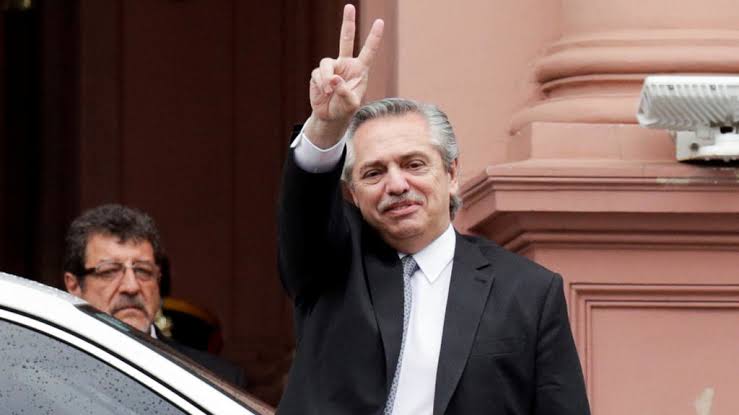RIO DE JANEIRO, BRAZIL – When Alberto Fernández visited Mexico on his first trip abroad since becoming Argentina’s president, he said the two countries would face the “challenge of globalization” together.
Less than five months later, the respective stances of Fernández and Mexican President Andrés Manuel López Obrador in fighting the coronavirus pandemic could not be more disparate.

While only now did the Mexican leader decide to urge citizens to remain at home – after encouraging them to eat out in support of the local economy – Argentina paralyzed social life and enforced a strict quarantine policy a week ago, even at risk of disproportionately affecting the livelihoods of Fernández’s lower-middle-class voter base.
The shift from an outbreak to a pandemic and talks with leaders at the heart of the fight against the disease were critical to that decision, sources said.
“The choice is either to take care of the economy or take care of life,” Fernández said on Wednesday. “I chose to take care of life.”
In Latin America, where a large number of people rely on the informal economy to survive, there are no good options for leaders.
Fernandez’s decision to go all-out to fight Covid-19 stands out not only for its contrast with Mexico, but also with Brazil, where President Jair Bolsonaro has underestimated the risks and clashed with governors who take strict measures to curb the spread.
The decisive moment
“This is a decisive moment for Alberto Fernández to show that he is in control and leading the country,” said Jimena Blanco, head of Latin American policy research for the Verisk Maplecroft consultancy. “The worst scenario is to see a disorderly or no response, which is what we are witnessing in Mexico and Brazil.”
Fernández’s decision to quarantine the country was deeply influenced by the World Health Organization’s announcement on March 11th that the coronavirus outbreak had become a pandemic, according to a government official.
Dr. Maureen Birmingham, the WHO representative in Argentina, is in ongoing contact with authorities and with Fernández himself.
That decision was reinforced when the Argentinian president saw cases rapidly escalate in Italy and Spain – two countries from which many Argentine ancestors come.
Before announcing the lockdown, Fernández spoke with the Italian and Spanish prime ministers, Giuseppe Conte and Pedro Sánchez, to hear their experiences, the authority said. Fernández strengthened ties with the two leaders after visiting them earlier this year.
The Mexican president, on the other hand, is notoriously reluctant to travel abroad.
Buying time
Fernández also wanted to buy time for Argentina’s fragile health system, trying to flatten the curve as quickly as possible, the source said. The President speaks daily with the governor of the province of Buenos Aires and the mayor of the city, where most cases are concentrated.
On Thursday evening, the government ordered the closing of borders to prevent even Argentinians from leaving and entering the country until the end of the quarantine.
In parallel, Fernández, who publicly acknowledged that his strategy would further plunge the depressed economy, said that he expects the peak in cases to occur in the first half of May and is willing to extend the lockdown that ends on March 31st, if necessary.
Surveys show that most Argentinians approve of the government’s reaction.
Nevertheless, this is a big gamble for Fernández. While the rich can escape the crisis by working from home, this luxury is not available to the less well-off who make up his electoral base. In 2018, nearly half of all Argentinians worked in the casual economy, according to the Catholic University of Argentina’s research institute.
There is still no guarantee that the tough measures also implemented by other smaller economies, such as Chile, Peru and Colombia, will succeed in fighting the pandemic that is spreading rapidly throughout Latin America.

